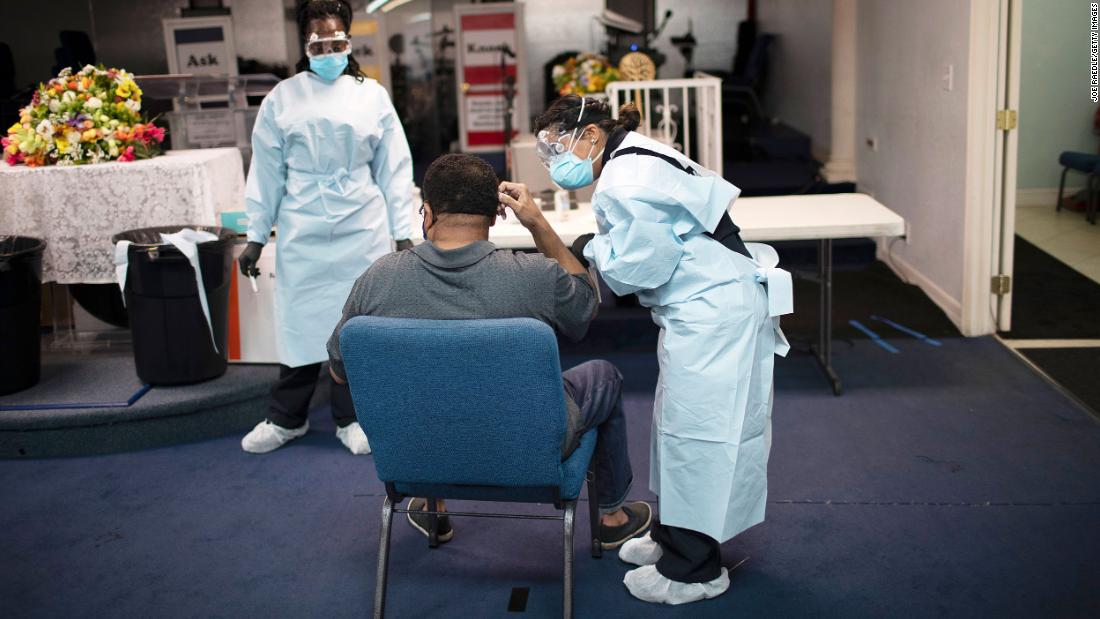
"This will be a test run for allocation of vaccines," said Rep.
"This scramble for monoclonal antibodies could happen two months from now or even earlier."
It's not clear who will make the decisions about where the initial antibody doses go.
Foster, a member of the House coronavirus subcommittee, imagines a potential nightmare scenario where "poor people are dying in overcrowded hospitals because they can't get the adequate doses of the curative antibody therapeutics, while rich people are getting preventative doses by signing up for the week stay at the presidential suite at Mar-a-Lago," he said.
But even in the best-case scenario -- even if such an antibody treatment proves effective -- there will likely be only a few hundred thousand doses initially available.
But the federal government isn't buying up potential drugs in the same way it's pre-ordering vaccines, partly because it's harder to stock up on therapeutics when there are so many still being tested.
"Advanced purchasing of therapeutics is going to be slower," Dr.
Janet Woodcock, a Food and Drug Administration official who leads therapeutics development for Operation Warp Speed, said in a recent media briefing.
We can't just buy advanced purchases of 600 different agents."
US health experts have been particularly optimistic about the odds of monoclonal antibody treatments being effective, in part because the healthcare industry already uses such therapies to treat illnesses like HIV, asthma, Ebola and some types of cancer.
But they take effect quickly and are useful in temporarily protecting vulnerable populations or helping sick patients ward off the worst of the virus.
'How do you allocate this?'
Companies like Regeneron and Eli Lilly have already started ramping up production in the hopes their antibody treatments will prove effective.
"Obviously we are trying to get as many doses available as possible for as many people," Woodcock said in a July briefing, noting that across the globe there's limited capacity to manufacture monoclonal antibody treatments.
Where those doses go is a question that will most likely fall to the federal government.
"Everybody has an incentive to just stockpile."
Operation Warp Speed "is focused on the development, manufacturing and distribution of FDA approved, safe and effective vaccines and therapeutics, not policy," Woodcock said in a written response to questions from CNN.
"Every effort will be made to assure maximum transparency," said Woodcock, who added that the Centers for Disease Control and Prevention and the Department of Defense are working on plans to distribute vaccines and therapeutics.
While drug-makers aren't sure how the administration could allocate their products, executives insist they are committed to ensuring the distribution is fair and weighted toward the most vulnerable populations.
"I don't think we're going to have an auction market where people who can pay the most are going to get access to it," Regeneron's Schleifer said.
"Both groups have an extremely strong moral call on the first doses of therapeutics or vaccines."
Hope for nursing homes
Administering antibody treatments is also a challenge.
"The positive of this study is that it gives the patients and the staff hope that they may be getting a treatment that can help."
There was widespread agreement, among experts, drug-makers and policymakers, that an effective antibody treatment could be a godsend for nursing homes in particular.
